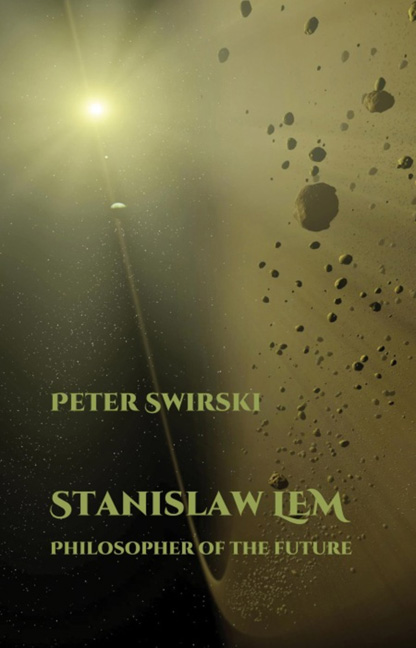Book contents
6 - A Beachbook for Intellectuals
from PART II - ESSAYS
Summary
A Novel of Ideas
In 1984, when asked to sum up his breakout novel, The Moviegoer, Walker Percy answered without hesitation that it was “a novel of ideas as well as, I hope, a good novel in its own right”. Few words could better describe Lem's own novel of ideas, The Chain of Chance. As gripping today as it was in 1976 when it appeared on Polish bookstands, it fuses nail–biting suspense and science–smart philosophy—in this case, the philosophy of chance—to deliver a quintessential beachbook for intellectuals.
Considering the acclaim and respect Lem commands worldwide, this major novel from his mature period should have by now received its share of critical analyses and learned debates. This is, however, not the case. When I asked him in the first months of the new millennium why this might be so, Lem only shook his head, manifestly mystified by the limited circulation of his nobrow masterpiece. In the age of prepackaged niche marketing that separates literature from bestsellers, could it be the fact that Lem's gory thriller serves as a nobrow vehicle for a cerebral novel of ideas?
Towards the end of the 1960s, a significant mutation began to take effect in Lem's fiction. Until then the author still populated his stories with relatively conventional characters—if you can call mortal engines or clouds of cybernetic micro–symbionts conventional— and charted their narrative progress in relatively linear plots. Now his stories would undergo major transformations of a twofold variety. In the variant maximum, individual heroes would more and more often cede the spotlight to that belligerent and self–destructive species, Homo sapiens. In 1983 Lem spelled out his rationale in this way:
conventions of normal, realistic literature, or whatever you call it, are insufficient for me. It is so because they usually limit one's field of vision to small groups of people, while I am interested in the fate of humanity as a whole.
In the variant minimum, wholly hero–less narratives would serve him as vehicles for ideas, hypotheses, and theories of a decidedly non–literary character. The plots, too, would diverge on either side of conventional, becoming either radically thinned out, sometimes to the point of non–existence, or else baroquely whimsical on a planetary or even cosmic scale.
- Type
- Chapter
- Information
- Stanislaw Lem: Philosopher of the Future , pp. 141 - 164Publisher: Liverpool University PressPrint publication year: 2015



